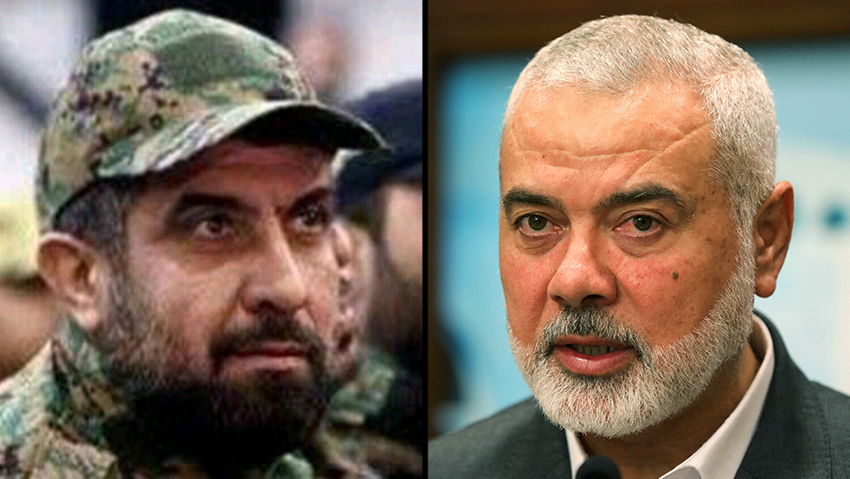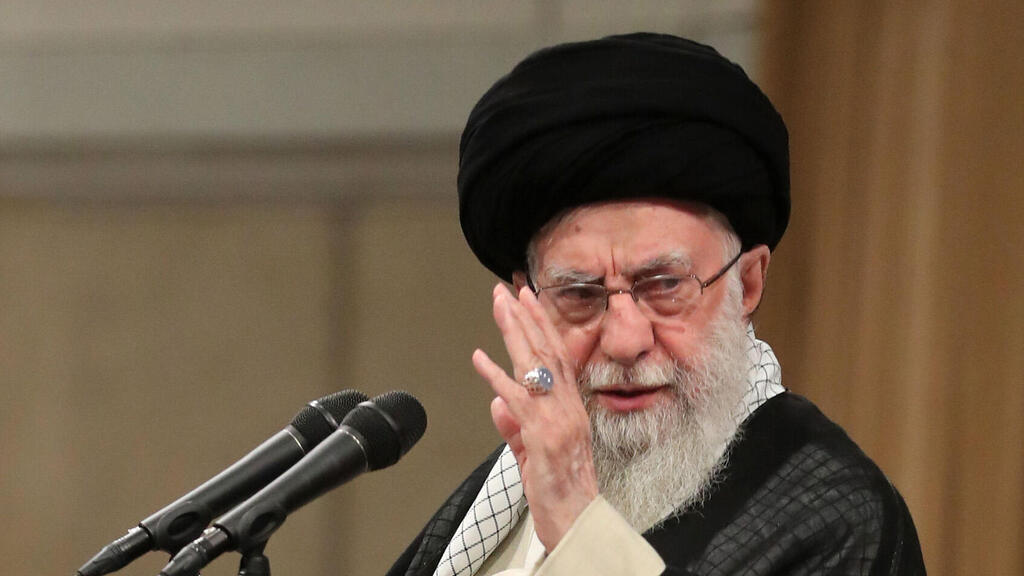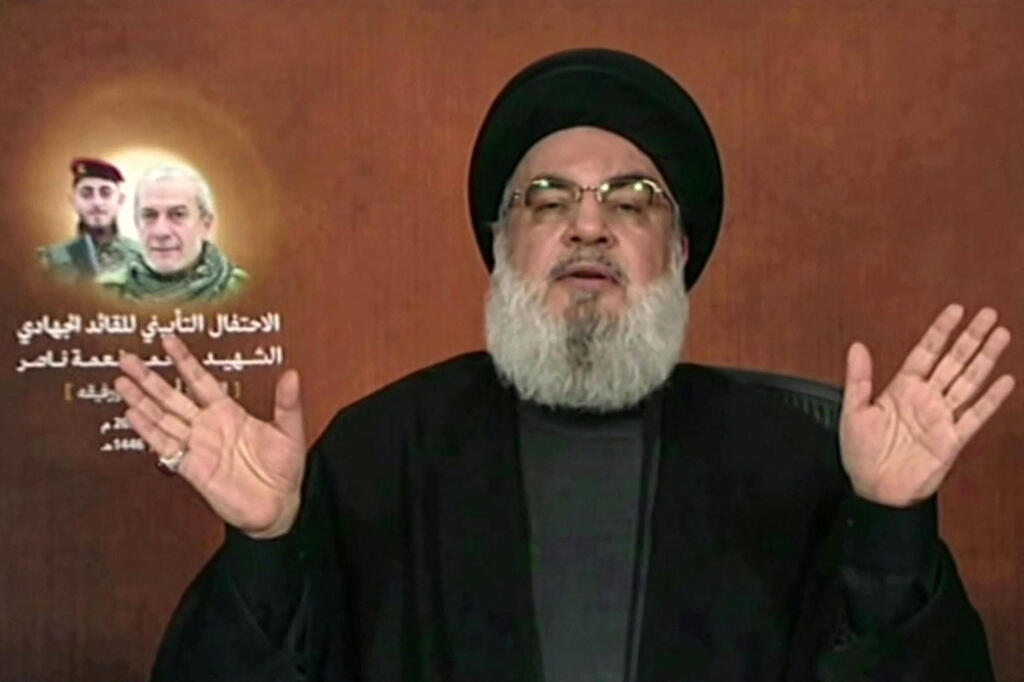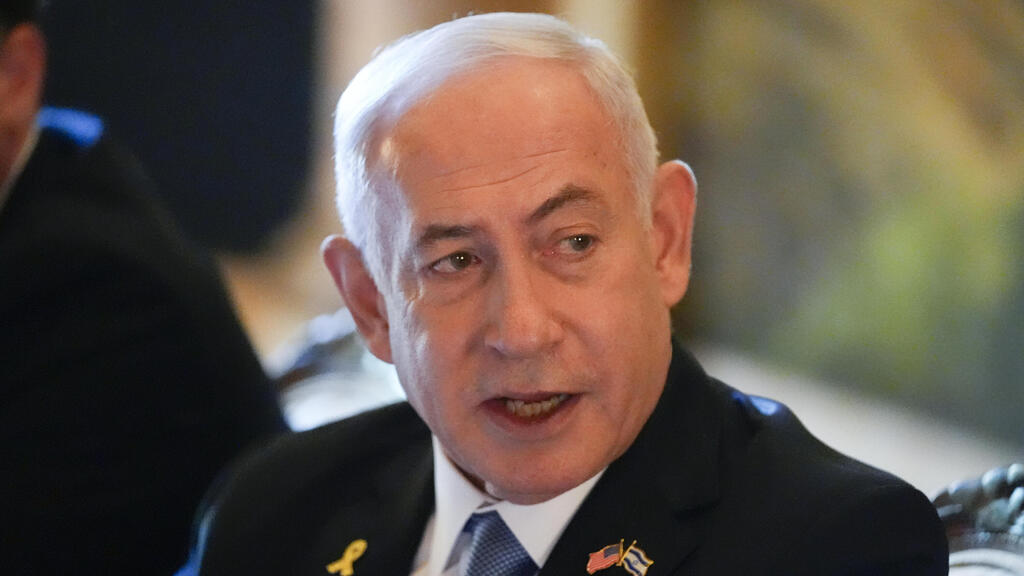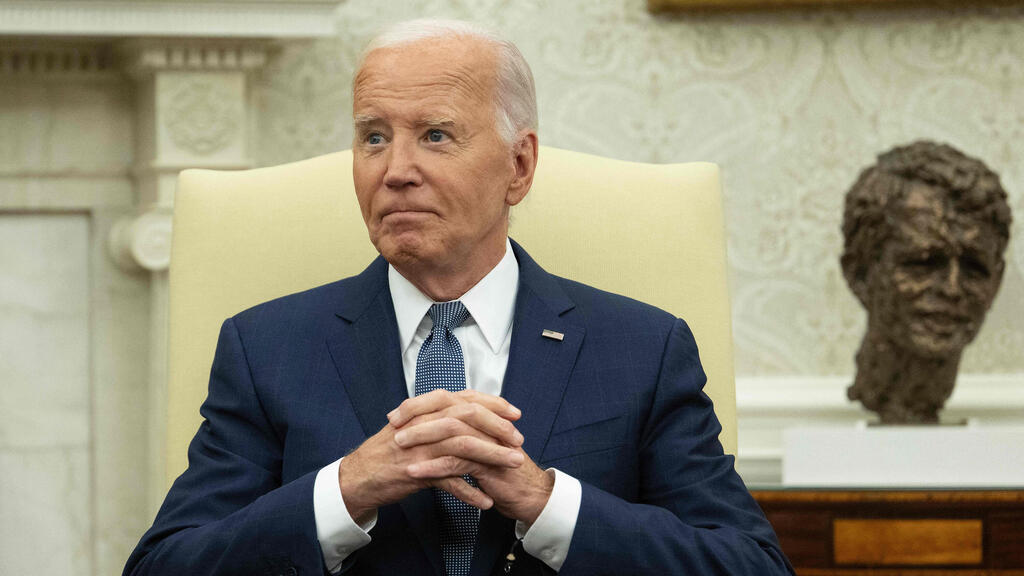Getting your Trinity Audio player ready...
The two assassinations that took place Tuesday night and hours later on Wednesday morning, one in Beirut and the other in Tehran, are a direct challenge to Iran and its proxy strategy. In essence, Israel is forcing the Iranian leadership, Supreme Leader Ali Khamenei and the Islamic Revolutionary Guard Corps (IRCG) to decide whether they want a full-scale direct war with Israel or if they’d rather gradually de-escalate the situation.
If Israel indeed stands behind Ismail Haniyeh's assassination, Israel's security officials and intelligence community including Mossad, Military Intelligence Directorate and the Israeli Air Force, can claim a brilliant military and intelligence achievement in both cases.
However, that's not the main point. The main point is Israel telling Iran and its proxies that if they don't stop, it won’t hesitate to head into a full-scale war not only with Hezbollah, Hamas and the Houthis, but also with Tehran itself.
This means that we in Israel also need to prepare ourselves for a major war. In such a scenario, the home front will become the main front and will be subject to missile attacks of all kinds, along with kamikaze drones which will be launched not only from Lebanon and Yemen, but mainly from Iran.
We’re also likely to face an Iranian attempt to deploy armed Shia fighters from Iran, Iraq and Syria into the conflict, and perhaps even Houthis from Yemen who will be transferred to Syria or join Hezbollah in Lebanon in attempts to carry out raids on the northern border.
A regional war?
Before deciding to act in Beirut and possibly in Tehran, Prime Minister Benjamin Netanyahu, Defense Minister Yoav Gallant, IDF Chief of Staff Herzi Halevi, Mossad Director David Barnea and Shin Bet head Ronen Bar knew very well that this was the penultimate step in the descent into a regional war.
They understood this was essentially a gamble because it isn’t certain – and this is a fact that must be recognized – that Iran doesn’t currently want a regional war that would entangle it with the United States.
The Iranians correctly assume that Israel consulted with the United States before the assassination of Fuad Shukr – a senior figure in Hezbollah's military rank. They assume that Washington approved this operation against someone who was partly responsible for the massacre of U.S. Marines in Beirut and was on the U.S. most wanted list.
However, it can also be assumed Haniyeh’s assassination in Tehran wasn’t coordinated in advance with the U.S. The Iranians also assume, probably correctly, that if they attack Israel as they did on April 14 they might face a U.S.-led coalition as a result.
Therefore, the Iranians are also in a state of uncertainty and are currently facing a difficult dilemma. On the other hand, it seems that Israel has clarified to Tehran’s leadership through these operations that it’s ready for a major war, both logistically and morally, although it doesn’t want one. Now it’s the Iranians’ turn to decide.
A war on Iranian terms
The Iranians don’t want a regional war right now, not even a geographically limited but intense military conflict with Israel. They prefer such a war to take place when Iran already has operational nuclear weapons in hand. Then, it and its proxies would enjoy immunity like North Korea, which provokes the U.S. and its neighbor South Korea.
Iran knows that the U.S. will be less likely to rush to Israel's aid once it has nuclear weapons. Currently, Iran is considered a threshold nuclear state since it can produce enough fissile material to produce at least one bomb within a week to 10 days.
However, the bomb mechanism, meaning the nuclear explosive device and one that can be mounted on a missile, won’t be ready for at least a year to a year and a half. Therefore, the timing for a full-scale war, in which Iran would come to the aid of its proxies and confront Israel directly, isn’t convenient for Tehran right now. They prefer the Houthis and mainly Hezbollah to continue hitting Israel and wearing it down.
The situation until Tuesday was ideal for Iran, as it wore Israel down and let it wallow in its political strife while tens of thousands of its residents are refugees in their own country, and border towns are destroyed.
Furthermore, Israel's legitimacy to fight is evaporating in this situation. In the Iranians' eyes, Israel is slowly sliding into a state of implosion, as they have always wanted to see it. Therefore, the current challenge to Iran puts Khamenei in a difficult dilemma: whether to pick up the glove that Israel has thrown and go to war – when Israel is at its peak of intelligence and military capabilities – or decide to take a step back and settle for a measured and limited response for the humiliation of Haniyeh's assassination.
Yes, from the Iranian regime's perspective, assassinating Hamas’ leader during the celebrations for the inauguration of Iran's new president is a humiliation and proof the regime is penetrable and weak. This is a frightening scenario for the Iranian leadership: that the dissatisfied masses — and there are such people in Iran — will recognize the weakness and launch a rebellion.
On the other hand, should Iran decide to attack Israel and the action doesn’t achieve its goals, it would be another proof of the Iranian regime's weakness. Therefore, Khamenei, the IRCG, and the conservative ayatollahs will have to think very carefully.
Nasrallah's dilemma
The dilemma is even more challenging when it comes to Beirut. Hassan Nasrallah is less surprised by the Israeli action than the Iranian leadership. He knows his organization is penetrated, and he has taken personal measures to prevent the assassination of his senior officials but ultimately failed.
The very operation in the heart of Beirut places Nasrallah's strategy in a new position. According to the doctrine Hezbollah has managed since October 8, an attack in Beirut obliges Hezbollah to strategically hit Tel Aviv or at least another major city in Israel severely.
However, such an action means a total and intense war with Israel, which neither Nasrallah nor most Lebanese citizens, including the Shiites, wish for. Further, the Iranians don’t want a war in Lebanon that would deplete Hezbollah's vast arsenal of missiles and drones, which, according to Tehran, are meant to be used only on the day Iran's nuclear facilities are attacked.
Thus, Israel has also decided to take a calculated risk in the Lebanese arena, knowing that, should it enter a full-scale war in the north, it would be better if Hezbollah grants us international legitimacy to do so by retaliating for the strike.
If Hezbollah responds to the assassination with intensity, even the Americans won’t be able to stand aside and will help us. The Lebanese terror organization is aware of this, and therefore, Nasrallah is currently facing a dilemma.
Efforts to reach hostage deal
The assassinations in Tehran and Beirut won’t impact the chances of securing a hostage release deal positively. However, it seems the prime minister and security officials have concluded Hamas is no longer willing to provide further concessions, and neither is Netanyahu.
Therefore, the chances of reaching a deal are currently very slim, and it seems the decision to carry out the operations in Tehran and Beirut was made based on Israel's overall strategic considerations, despite the potential delay in the release of hostages.
Haniyeh’s killing in Tehran isn’t expected to impact Hamas in general significantly or Yahya Sinwar in particular. Haniyeh was Sinwar’s political rival, and the two hadn't seen eye to eye on issues that arose since October 7. However, his assassination deals a severe moral blow to Gazans and the Palestinians in general. It also proves that Tehran is, to a large extent, a paper tiger compared to Israel's intelligence, technological and aerial power.
The same is true for the assassination in Beirut: Shukr’s death is a blow to Hezbollah's leadership and perhaps even to Nasrallah himself. However, the main damage caused to the organization is proof that Israel can strike within Beirut with extreme precision even while he takes the maximum protective measures available.
This should make Nasrallah think twice before any move, as he himself is hiding in a bunker. The assassination in Beirut sends a message to Nasrallah: If you start a war – or rather, if you do not stop it – you’re next in line.
Finally, we must look at the international situation. Russia was quick to condemn the assassinations, and China followed. What is critical for Israel is how the U.S. will act in this regard.
Both assassinations were calculated gambles, and now we must hope and pray that they end in the result Israel hopes for. In the meantime, the home front must prepare for the barrage of missiles that will come and hope our enemies are deterred and our allies stand by us. Good luck to us all.



